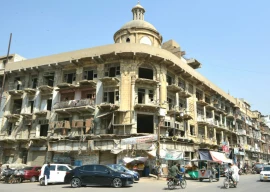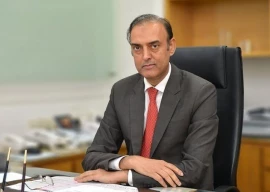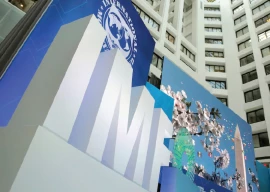
“The coming budget should be progressive and growth-oriented, providing necessary directions in a bid to stimulate investment and generate more revenue for the government purse,” he said while speaking at a pre-budget seminar, organised by the Institute of Cost and Management Accountants (ICMA) Pakistan, here on Wednesday.
Pasha said foreign trade played a vital role in economic development of any country, which had undergone revolutionary changes.
“Protective tariff and trade barriers are falling and an era of open market has set in,” he said. “Artificial props are tumbling down and fierce competition is heralding the survival of the fittest.”
Pasha pointed out that textile exports were in the grip of a severe crisis as high cost of doing business and lack of competitive edge over regional rivals, primarily due to energy constraints and unavailability of funds, were hurting export growth.
To cope with the challenges, he suggested, exports should be competitive and viable in international competition and textile exporters should have a level-playing field.
“Regional nations are providing a lot of subsidies and incentives to their textile export sector to remain competitive in the international market.”
Recently, in a bid to engage in stiff competition with Pakistan, India has announced huge subsidies for its textile exporters to edge out Pakistan in the European Union market.
Comparing the energy cost with regional rivals, Pasha said gas price in Pakistan was around $6.27 per million British thermal units (mmbtu) whereas in Bangladesh it was just $1.91, in India it was $4.20 and in Sri Lanka the price was $3.66.
“The government should consider providing some kind of subsidy in utilities to the textile industry,” he suggested.
He was of the view that the government, instead of helping the textile industry to survive through difficult times, was creating hurdles by withholding taxes and other refund claims.
“Blocking of capital is a serious issue faced by textile exporters as a big chunk of their working capital has been stuck for a long period of time in the refund cycle.”
Textile is a vital part of the economy as it contributes 60% of foreign exchange earnings and generates 42% of employment. “Therefore, it should be given due importance in the budget,” he said.
“International market fundamentals cannot be changed, but domestic impediments to production can be removed.”
Concluding, Pasha said the government should particularly focus on productive tasks in the budget as they would lead to new investments.
Published in The Express Tribune, April 16th, 2015.
Like Business on Facebook, follow @TribuneBiz on Twitter to stay informed and join in the conversation.
1732090022-0/Elmo-and-Amelia-(1)1732090022-0-405x300.webp)
1725523665-0/Minecraft-Movie-(1)1725523665-0-165x106.webp)

1732089759-0/BeFunky-collage-(75)1732089759-0-165x106.webp)


1732084432-0/Untitled-design-(63)1732084432-0-270x192.webp)










COMMENTS
Comments are moderated and generally will be posted if they are on-topic and not abusive.
For more information, please see our Comments FAQ